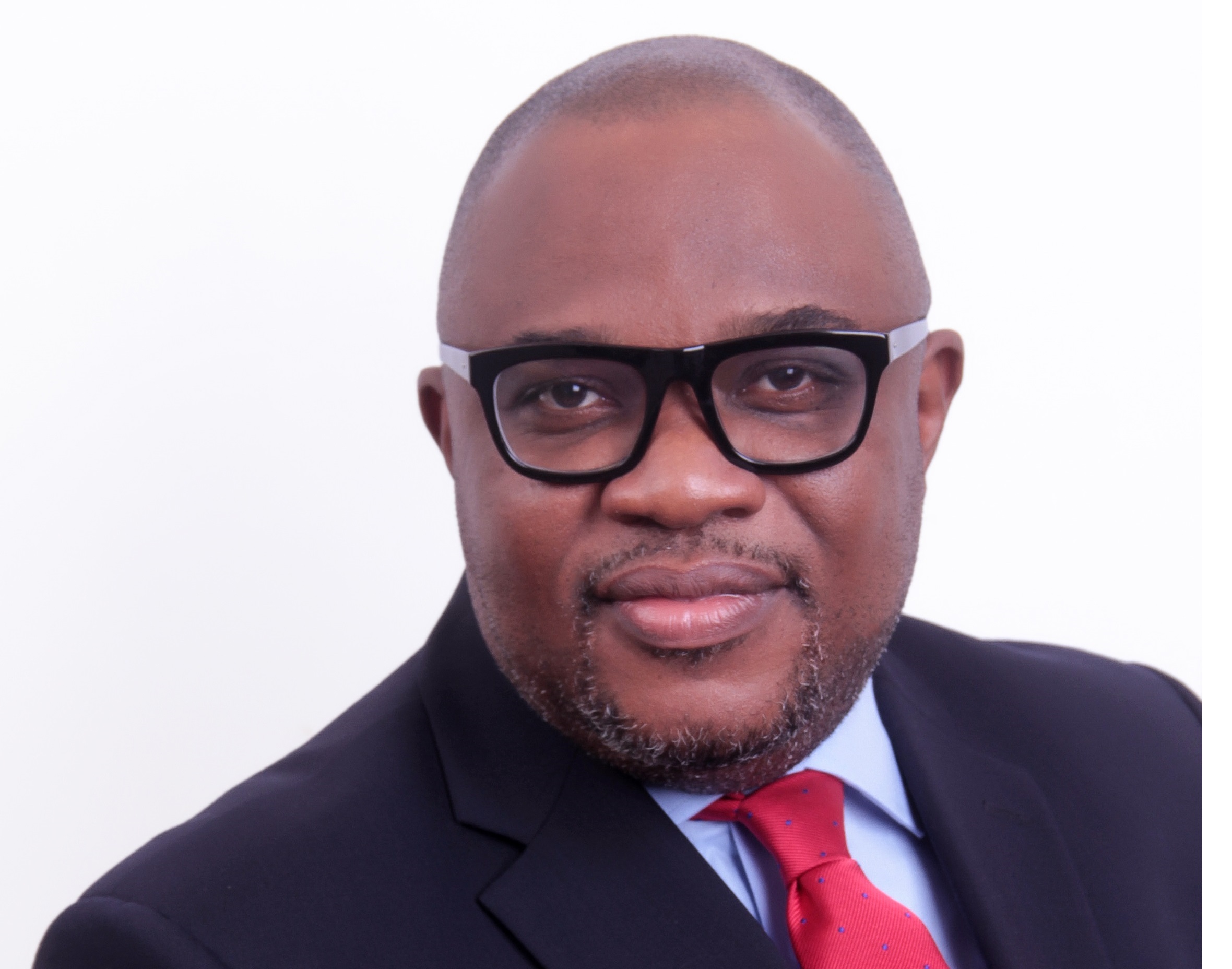News
IBM Identifies How Nigeria Will Benefit from Data Innovation

By peter oluka
As technocrats and private sector leaders celebrate Nigeria’s 145th position on the World Bank’s Ease of Doing Business Report for 2018, the Nigerian government’s ongoing efforts to reform its business environment, revamp and harmonize its data management capabilities with regards to public administration of the nation’s human and material resources has been commended as a step in the right direction by Mr. Dipo Faulkner, IBM’s Country General Manager.
“Accurate data and information management is the backbone of any reform programme,” Faulkner said, making the point that technology utilization will continue to drive improvements in the business and investment climate.
Nigeria moved up 24 points from the 169th position on the 2017 ranking. According to the World Bank, Nigeria alongside El Salvador, India, Malawi, Brunei Darussalam, Kosovo, Uzbekistan, Thailand, Zambia and Djibouti are the top 10 improved countries worldwide, after carrying out numerous reforms to improve their business environments.
“These rankings reflect that the country is making appreciable progress on its ease of doing business credentials, nevertheless, we desperately need to move towards becoming a society driven by data and other advanced technologies like cloud computing, artificial intelligence (AI) and the Internet of Things (IoT),” Faulkner said.
“Data is increasingly becoming the world’s new natural resource and this ‘big data’ phenomenon has begun to change everything. Right now, we have over one trillion connected objects and devices on the planet generating data. Data is driving the concepts and strategies behind the Internet of Things (IoT) which is bound to affect all industries. It is important for companies and government institutions in Nigeria to know that the world is now moving into a new era of the cloud and cognitive computing environment, driven by data,” Faulkner said.
“Government’s recent pronouncements in this regard is a step in the right direction, and one which all agencies of government should take as a clarion call to invest in modern business management tools and technology,” Faulkner opined, as he observed that there was no better time than now, as the economy was recovering from a recession, for increased private and public-sector investments in technology.
Technology industry analysts observe that data mining and e-governance efforts in Nigeria, one of Africa’s largest economies by GDP, have at best been a debacle.
As one of the largest employers of labour, government ministries, departments and agencies (MDAs) generate a significant portion of Nigeria’s data traffic. Banks have disparately collected Know-Your-Customer (KYC) and bio-metric information of their customers for years.
Government-owned enterprises also collect pretty much the same data for a plethora of reasons. This has resulted in the proliferation of biometric-based identity systems in the country, with banks, telecom operators, the police and immigration services collecting pretty much the same citizens information and data.
Business and Technology industry analysts agree that this scenario needs to be fixed if Nigeria is to fully tap into the many benefits of the global big data economy. Data is a key ingredient for innovation, they emphasized.
Nigerian President Muhammadu Buhari has recently instructed relevant government agencies to fix the nation’s “data management” syndrome.
He has set up a data harmonization programme to ensure that all MDAs align their existing infrastructure as data collection agents to the National Identity Management Commission (NIMC), which manages the nation’s National Identity Database (NIDB).
The plan to integrate public sector -owned databases into the NIDB will begin with the nationwide Bank Verification Number (BVN) scheme, managed by the Central Bank of Nigeria (CBN); the Subscriber Identification Module (SIM) card registration exercise of the Nigerian Communication Commission (NCC); the driver’s licence scheme by the Federal Road Safety Commission (FRSC) and the National Identity card scheme by NIMC.
“Apart from being unwieldy, the cost of operating multiple discordant databases and infrastructure is untenable and not security smart,” said Acting Secretary to the Government of the Federation, Mrs Habiba Lawal, recently in Abuja while inaugurating the Governing Board of the NIMC.
“As a nation, we must act speedily to revamp and replace manual, paper-based administrative systems and processes with computerized systems. This is a clarion call for a collaborative mindset and partnership between our public and private sector firms,” Faulkner says. “We must not only harmonize our efforts to drive up efficiency levels, we must also ensure that technology is at the core of our efforts to innovate.”
News
How and Why N210 Trillion is Missing in NNPCL – CFO

Adedapo Segun, chief financial officer (CFO), Nigerian National Petroleum Company Limited (NNPC), has explained why there is a missing sum of N210 trillion in the company’s audited financial statement spanning from 2017 to 2023.

According to Segun, the missing funds are cash calls requested by joint venture (JV) partners and settlement to the JVs.
He spokeat a session of the Senate Committee on Public Accounts chaired by Aliyu Wadada.
Segun was responding to an alarm raised by the committee over missing N210 trillion in NNPCL’s audited financial statement.
Recall that Wadada issued a one-week ultimatum to NNPCL to account for the missing N210 trillion.
Reacting, Segun said, “The N103 trillion and N107 trillion are made up of joint venture cash calls that have been requested by the JV operators and JV cash call payments made by NNPCL, which are yet to be reconciled because governance procedures were not done at that time.
“That is why you see the description reflecting those two items would be washed out because they are two sides of the same transaction, which is the cash calls by JV partners and the settlement by NNPCL.”
However, Habu Sadeik, a financial analyst, in a post on X on Thursday, said Segun’s response was unsatisfactory.
Saidik faulted NNPCL’s response about the fund discrepancies, noting that something is not right with the audited financial statement.
“Forget about the senators’ lack of knowledge.
“The CFO’s response is not satisfactory. Are you saying that cash calls worth hundreds of trillions are just appearing on your FS only in 2024 without 31 disclosure?
“If it’s a cash call, why hasn’t the disclosure said so?
“Which cash call is over 100 trillion?
“Something is definitely not right, and I hope they retrospectively correct that FS.
“Someone somewhere did a chef’s work,” he wrote on X.
News
PalmPay, Glo Launch “Recharge and Win Bonanza 2” with Exciting Prizes

PalmPay, Nigeria’s leading fintech company, has partnered with Globacom to launch the second edition of the “Recharge and Win Bonanza” campaign. The promotion, which runs from June 19th to August 8th, 2025, offers Nigerians the chance to win amazing prizes when they purchase Glo airtime and data via the PalmPay app.

According to a joint statement by PalmPay and Globacom, “A weekly live raffle draw will be held and streamed on PalmPay’s official social media channels throughout the campaign. Customers who make Glo transactions through the PalmPay app will be eligible to win prizes, including the iPhone 15 Pro, Infinix Hot 40, and other exciting items”.
To participate, interested customers can log onto http://bit.ly/PalmPaySms .
The statement added that all transaction above N500 gives participants an extra shot at winning, adding that daily social media challenges will also offer participants a chance to win cash prizes.
Additionally, PalmPay users can enjoy up to 6% cashback when they buy Glo airtime and data through the PalmPay app. As an added bonus, customers who have not subscribed to a Glo data plan in the last 90 days will receive a 100% bonus on their recharge during the campaign period.
Wayne Ruppel, Head of Billers at PalmPay Limited expressed excitement about the partnership, stating that, “This collaboration is a major step in our mission to deliver MORE – more support, more rewards, and more innovation to our customers.
Partnering with Glo, a leader in the telecommunications sector, is a testament to our shared commitment to improving everyday experiences for all Nigerians. We are excited to reward our users and encourage everyone to take full advantage of this exciting opportunity.
Globacom also expressed delight at creating additional value for its subscribers through unique customer-appreciation schemes.
“Our partnership with PalmPay on the “Recharge and Win Bonanza perfectly underscores our commitment to delivering exceptional value and experiences. Over the years, we have always sought innovative ways to enrich the lives of our customers. We, therefore, enjoin our subscribers to utilize the opportunity provided by the bonanza and enjoy the many benefits it offers”, the company stated.
PalmPay and Glo will collaborate throughout the campaign period to deliver exceptional customer experience, reward loyalty, and reinforce their shared mission to make digital transactions more accessible, rewarding, and secure for millions of Nigerians.
News
Lasaco Assurance to Invest in Technologies, Systems to Deliver Value to Clients

Lasaco Assurance Plc, has said it would continue to invest in technologies and systems that delivers tangible value to clients and drive industry innovation.

Mr Abiodun Razzaq, Managing Director of Lasaco Assurance, who stated this at the 2025 customer forum organised by the company for its northern region customers in Abuja, said the forum’s interactive session offered an invaluable platform for open and constructive dialogue.
He said the forum brought together a distinguished assembly of customers, including policyholders, brokers, corporate clients, and industry partners, to engage in a robust dialogue aimed at enhancing service delivery and aligning offerings with the evolving expectations of the Northern market.
In his opening remarks, Regional Manager (Northern Region), Lasaco Assurance, Mr. Kunle Hamza underscored the company’s unwavering dedication to stakeholder engagement as a foundational pillar of its growth strategy. He emphazised that customer insights remain integral to shaping policies, refining service processes, and reinforcing the company’s brand promise.
He provided a compelling overview of Lasaco assurance’s recent performance and strategic priorities. He highlighted the company’s consistent premium income growth, bold digital transformation agenda, and ongoing operational restructuring designed to ensure responsiveness and resilience in a dynamic insurance landscape.
Addressing the customers, Mr. Adedayo Adetokun, Head of Strategy, affirmed that Lasaco assurance was actively developing multiple digital platforms to cater forvarious customer segments—part of a broader digital innovation roadmap that positions the company for future growth. He noted that human capital development was also being prioritised with targeted investments in talent acquisition and training to enhance operational capacity.
In his closing remarks, Mr. Muyiwa Anwoju, General Manager, Sales, expressed the management’s deep appreciation for the feedback received.
He assured participants that all contributions would be meticulously reviewed, categorised, and integrated into the company’s improvement plans. According to Anwoju, this forum marks the beginning of a renewed customer engagement framework, one that would be expanded across other regions in due course.

 Telecom2 days ago
Telecom2 days agoALTON Clarifies on Migration to End-User Billing for USSD Services

 News3 days ago
News3 days agoDigital Africa Global Consult, NDPC Partner on Ground-Breaking “Nigeria Data Challenge” Initiative

 E-Financial2 days ago
E-Financial2 days agoNigerian Stock Market Suffers ₦183 Billion Loss Amid Profit-Taking

 News2 days ago
News2 days agoDStv Rewards Loyal Customers with Free Package Upgrades

 Telecom2 days ago
Telecom2 days agoLagos Future Conference 2025: Stakeholders Call for Digital Responsibility and Grassroots Innovation

 General News2 days ago
General News2 days agoAfrican Parliamentarians Seek Answers from Telcos on Quality of Service

 E-Financial2 days ago
E-Financial2 days agoSEC Working on Stablecoin Regulation Framework

 News1 day ago
News1 day agoLasaco Assurance to Invest in Technologies, Systems to Deliver Value to Clients




























